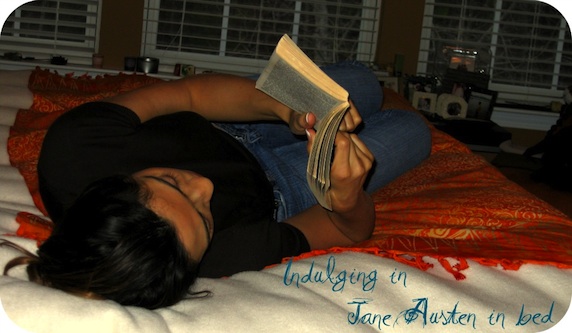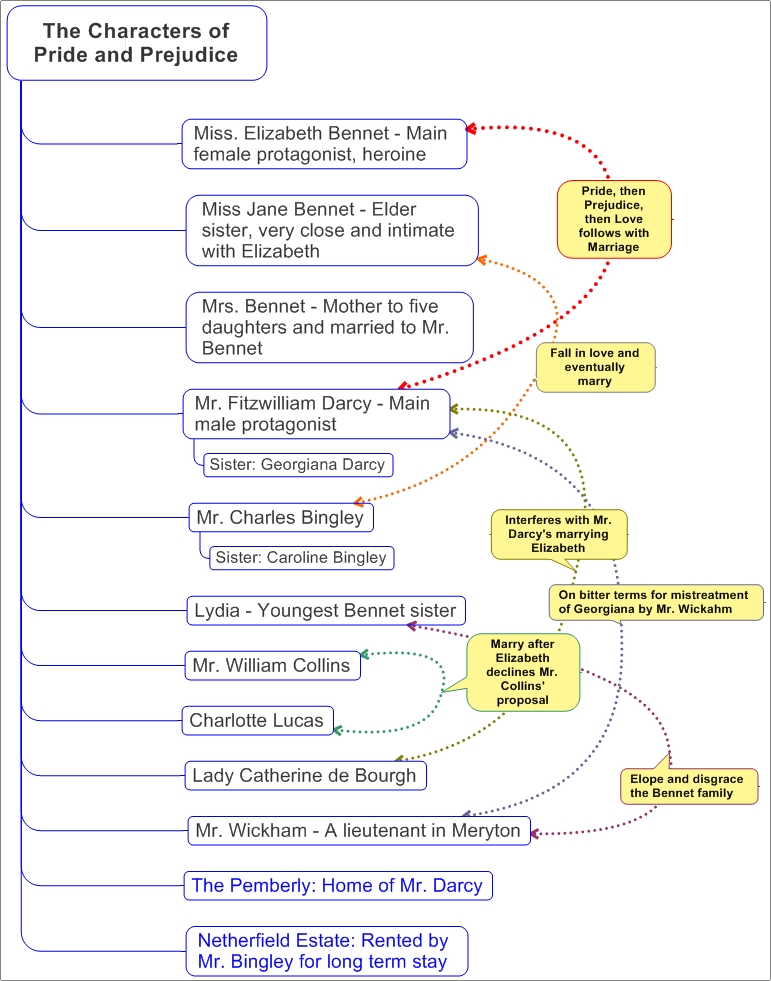Jane Austen’s masterpiece, Pride and Prejudice, is an epic novel, and no review or praise of this book, including mine, will yield it justice or measure the genius of the author behind it. There have been countless reviews of Jane Austen’s writing style and epic novels.
What else can I say that has not been said already? Perhaps if we as human beings are as complex and unique as Austen’s characters, so is the imprint of her book on our hearts and souls, and so here is my imprint.Jane Austen portrays characters that have clearly withstood the test of time, and through them, she shows us her powerful understanding of the complexities of the human emotions. Perhaps even as our world has changed dramatically since Austen’s time, we are still able to identify and relate to these complexities.
Perhaps, human beings in their essence do not change all that much even as their environment evolves and improves by gross dimensions.
The recurring themes in Pride and Prejudice, so carefully depicted by Austen, transport you ever so delicately into the world of 1813. These themes, the need for validation and identity for men and women alike, the obsession with honorable deeds and actions, the preservation of characters by their integrity, weaved perfectly through the author’s flawless prose, create some of the best writing of our time. Austen was a gifted writer and we are lucky to have her timeless prose to cherish long after her time.
In Pride and Prejudice, she articulates all range of human emotions in the most exquisite language and in such layers and authenticity, that you are powerless and inspired in its presence at the same time.
Austen exercises a commendable balance of players, lest we forget what lovely creatures in print our Elizabeth Bennet and Jane Bennet make. It is nauseating to tolerate the insufferable characters: Mrs. Bennet, Lydia, Lady Catherine de Bourgh, Miss Bingley, and the infamous Mr. Wickham. Yet it is a small price to pay to take a seat and listen to the symphony of dialogs between “Lizzy” and Mr. Darcy.
The enormous patience, compassion and forgiveness of Ms. Jane Bennet, the older sister of Lizzy, is a thing to awe. The patience to withhold any display of emotion, anger, sadness, frustration, loneliness, depression, even in the face of dishonesty, betrayal and poor judgment. Jane has her reasons, and Lizzy argues with them. Lizzy is outspoken and courageous, and yet, even her bravery has to be moderated in a society that values above all things the appearances, manners and social class. Opposites in this regard they may be, Lizzy and Jane can only confide and be most intimate with one another as the drama of their lives unfolds before them.
The vivacious heroine of our story is Elizabeth Bennet, or Lizzy. In Austen’s words, Elizabeth is “as delightful a creature as ever appeared in print”, and alas, I have to agree. Elizabeth is a woman born years before her time for her intellect, perception and judgment. With all odds against her, you cannot help but be in awe of her for finding the delicate balance between defying all who place boundaries on her dreams and politely playing by all the rules.
She is magnificent with her tongue. The English language bows before her, and she makes words dance, sing, and perform remarkably well on the stage of her speeches. She can bring Mr. Darcy to his knees and send him off with a rage and fury all in the course of one conversation. She is neither ashamed nor proud of her average connections and social class. Nevertheless, she refuses to believe that her ties stand in the way of her chances of connecting with higher classes of society.
She values genuine character above all else, and holds herself to the same standard. It is this trait of character that causes her much pain when she realizes how unjustly she had treated Mr. Darcy in his first proposal of marriage. Her indignation of his conduct, after careful study, seemed harsh and unjust. Upon realization of her poor behavior, Elizabeth’s vexation towards him turns into compassion and she chides herself. “Til this moment”, she says, “I never knew myself.”
The style of Jane Austen is free indirect speech. It is by far my favorite style of writing. In this style, the opinions and thoughts of the characters are expressed seamlessly, without the interruption of “he said”, “she said”, interjections, or exclamation points. Austen is consumed by these thoughts and opinions. The articulation of these beautiful journeys of the heart and soul, in the free indirect speech, are the timeless accomplishments of Austen in print.
Pride and Prejudice teaches us to not judge so quickly the mere actions of those we hold dear in our hearts, those we respect and cherish. It teaches us not to close doors before we thoroughly examine the situation, the motives, the intent beyond what may seem as bitter actions. It teaches us to not listen only for things we want to hear, for this quick judgment can be so potent that it can deafen us from any argument that may oppose it. Elizabeth regrets deeply the prejudice she exercised for the mistaken pride of Mr. Darcy. We cannot help but feel her regret and her pain.
Reading is the best pastime for an active mind! If you like to see the other book reviews, check the index of In Print.
A quiet wonder overcomes the examination of our own life: Do we know enough before we judge severely and do we truly understand the burden we place on the person we have judged so severely? And what for? Judging others in poor light has the bizarre effect of making one feel superior, only to feel just as inferior when the real situation comes to light. That is the complexity of human emotion that has not and will perhaps not change for eras to come.
There are countless sections of the book that I have read several times, some slow, some fast, some out loud, some in a whisper. It would be impossible to write all my favorite passages here from the 61 delightful chapters. Instead of reciting every word, let me start at the end, and end this review with a hopeful beginning for a return to preservation of grace, dignity and beauty in our love affairs in life.
Chapter Sixty: Dialog between Elizabeth and Mr. Darcy, moments after they are engaged to be married.
Elizabeth: “…but what could set you off in the first place?”
Mr. Darcy: “I cannot fix on the hour, or the spot, or the look, or the words which laid the foundation. It is too long ago. I was in the middle before I knew I had begun.”
Mr. Darcy: “….and after wards dined here? Why, especially, when you called, did you look as if you did not care about me?”
“Because you were grave and silent, and gave me no encouragement.”
“But I was embarrassed.”
“And so was I.”
“You might have talked to me more when you came to dinner.”
“A man who had felt less might.”
I sincerely believe the best adaptation of this classic is the 1995 movie by Colin Firth as the ultimate Mr. Darcy and Jennifer Ehle as Miss Elizabeth Bennet. The 2005 adaptation with Keira Knightly as Elizabeth Bennet and Matthew Macfadyen as Mr. Darcy could not have been less fitting, their chemistry less real, their presence on stage less convincing. The 1995 adaption makes for a long movie, but what with its most excellent choice of actors for characters of Darcy and Elizabeth and the best selections for dialogue, it gives us one of the rarest cinematic experiences. A chemistry of natural forces comes into being between Mr. Darcy and Elizabeth.
The breathtaking characters and dialog from the movie filled me with an urge to read the book. I watched the movie, read the book and watched the movie again.
Ms. Jane Austen,
Pride and Prejudice is a gift to this world – , we love you, we thank you, we admire the depth of your imagination, the unmatched ability of your articulation of human character, thought and beauty, and we shall forever treasure this gift.


 I am Farnoosh, the founder of Prolific Living. So glad you are here. My mission is to empower you to unblock your creative genius to live your dream life.
I am Farnoosh, the founder of Prolific Living. So glad you are here. My mission is to empower you to unblock your creative genius to live your dream life.